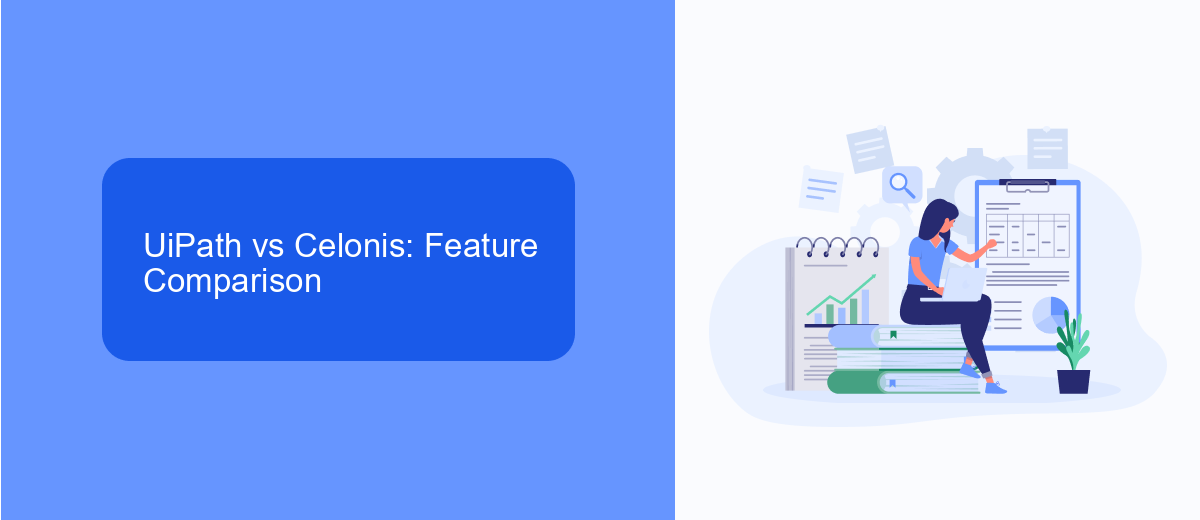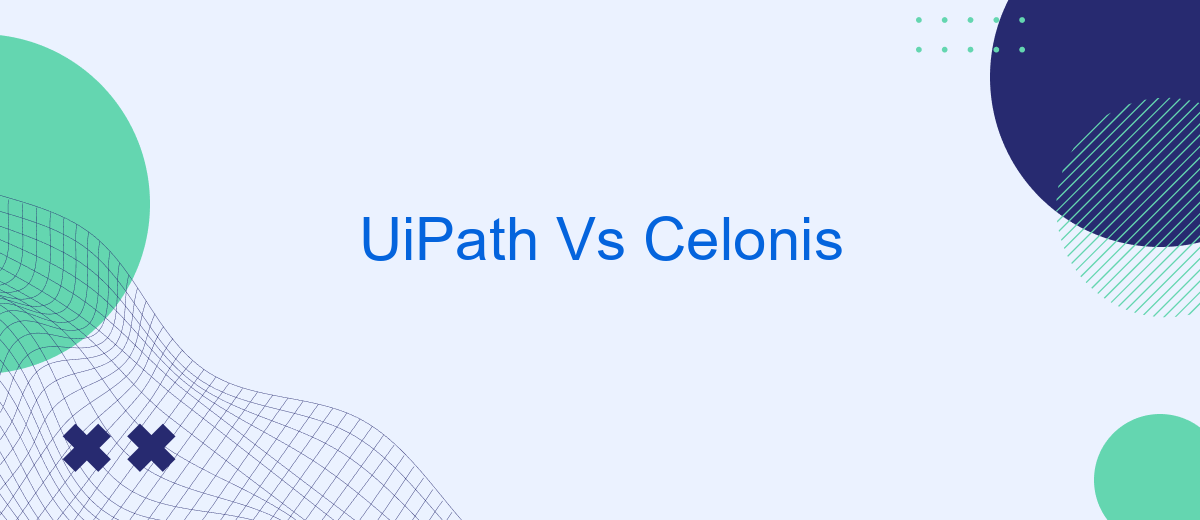In the rapidly evolving landscape of business process automation, UiPath and Celonis emerge as two leading platforms, each offering unique capabilities. UiPath excels in robotic process automation (RPA), streamlining repetitive tasks with ease. Meanwhile, Celonis specializes in process mining, providing deep insights into workflow inefficiencies. This article delves into a comparative analysis of UiPath and Celonis to help businesses make informed decisions.
Introduction
As businesses increasingly seek to optimize their processes and enhance operational efficiency, the use of automation and process mining tools has become indispensable. Two leading platforms in this domain are UiPath and Celonis. While UiPath specializes in robotic process automation (RPA), Celonis focuses on process mining to provide insights into business operations. Understanding the strengths and applications of each can help organizations make informed decisions about which tool best suits their needs.
- UiPath: A leader in RPA, enabling businesses to automate repetitive tasks and workflows.
- Celonis: Pioneers in process mining, offering detailed analytics to uncover inefficiencies and optimize processes.
- SaveMyLeads: Facilitates seamless integration between various applications, enhancing the capabilities of both UiPath and Celonis.
Choosing between UiPath and Celonis depends on the specific requirements of your business. UiPath excels in automating tasks, reducing manual effort, and increasing productivity. On the other hand, Celonis provides deep insights into process performance, helping identify bottlenecks and areas for improvement. Additionally, services like SaveMyLeads can bridge the gap between different platforms, ensuring smooth data flow and enhanced functionality.
UiPath vs Celonis: Feature Comparison

UiPath and Celonis are powerful tools in the realm of automation and process mining, respectively. UiPath excels in robotic process automation (RPA), providing a robust platform for automating repetitive tasks across various applications. It offers a user-friendly interface, extensive activity libraries, and strong integration capabilities with numerous third-party applications. On the other hand, Celonis specializes in process mining, offering deep insights into business processes by analyzing data from enterprise systems. It provides powerful visualizations, real-time monitoring, and advanced analytics to identify inefficiencies and optimize workflows.
When comparing features, UiPath's strength lies in its comprehensive automation capabilities, including AI and machine learning integrations. Celonis, however, shines with its ability to provide end-to-end visibility into business processes and identify bottlenecks. For organizations seeking seamless integration solutions, services like SaveMyLeads can be highly beneficial. SaveMyLeads automates the process of connecting various applications and services, ensuring that data flows smoothly and efficiently between UiPath and Celonis, thereby enhancing the overall automation and process optimization efforts.
Use Cases and Industry Applications

UiPath and Celonis are powerful tools widely used across various industries to optimize and automate business processes. UiPath primarily focuses on robotic process automation (RPA), while Celonis specializes in process mining and analytics.
- Banking and Finance: UiPath automates repetitive tasks like data entry and compliance reporting, while Celonis provides insights into transaction processes to identify inefficiencies.
- Healthcare: UiPath streamlines patient data management and billing processes. Celonis helps healthcare providers analyze patient flow and optimize resource allocation.
- Manufacturing: UiPath automates inventory management and order processing. Celonis offers real-time visibility into production processes to improve operational efficiency.
- Retail: UiPath enhances customer service through automated chatbots and order tracking. Celonis analyzes customer journeys to optimize sales and marketing strategies.
- Telecommunications: UiPath automates customer onboarding and service provisioning. Celonis helps telecom companies monitor network performance and reduce downtime.
Both UiPath and Celonis can be integrated with other business systems to enhance their functionalities. For instance, SaveMyLeads can help automate the integration of various applications, ensuring seamless data flow and improved process efficiency. By leveraging these tools, businesses can achieve significant cost savings and operational improvements.
Pricing and Licensing

When comparing UiPath and Celonis, understanding their pricing and licensing structures is crucial for making an informed decision. Both platforms offer different models tailored to various business needs, ensuring flexibility and scalability.
UiPath uses a subscription-based pricing model, which includes different tiers based on the scale and complexity of automation requirements. The licensing options range from individual robots to enterprise-level packages, providing a wide array of features and support options.
- Community Edition: Free for individual users and small teams
- Enterprise Edition: Custom pricing based on usage and features
- Cloud and on-premises deployment options
Celonis, on the other hand, employs a value-based pricing model, which means the cost is determined by the value and insights generated from process mining. This approach allows businesses to scale their investment according to the benefits they derive. Additionally, services like SaveMyLeads can be integrated to streamline data flow and enhance the overall efficiency of process mining and automation.
Conclusion
In conclusion, both UiPath and Celonis offer robust solutions for businesses looking to optimize their processes through automation and data analytics. UiPath excels in robotic process automation (RPA), providing a user-friendly platform that empowers organizations to automate repetitive tasks efficiently. On the other hand, Celonis specializes in process mining, offering deep insights into business processes to identify inefficiencies and areas for improvement. Each platform has its unique strengths, and the choice between them largely depends on the specific needs and goals of the organization.
For businesses aiming to integrate these powerful tools seamlessly, services like SaveMyLeads can be invaluable. SaveMyLeads facilitates the integration of various platforms, ensuring that data flows smoothly between systems and enhancing overall efficiency. By leveraging such services, companies can maximize the benefits of both UiPath and Celonis, creating a more streamlined and effective operational environment. Ultimately, the right choice will depend on a thorough evaluation of the organization's requirements and the potential impact on its workflow and productivity.
FAQ
What is the primary difference between UiPath and Celonis?
Can UiPath and Celonis be used together?
Which industries benefit the most from UiPath and Celonis?
Do I need technical expertise to implement UiPath or Celonis?
How can I integrate UiPath or Celonis with other business applications?
If you use Facebook Lead Ads, then you should know what it means to regularly download CSV files and transfer data to various support services. How many times a day do you check for new leads in your ad account? How often do you transfer data to a CRM system, task manager, email service or Google Sheets? Try using the SaveMyLeads online connector. This is a no-code tool with which anyone can set up integrations for Facebook. Spend just a few minutes and you will receive real-time notifications in the messenger about new leads. Another 5-10 minutes of work in SML, and the data from the FB advertising account will be automatically transferred to the CRM system or Email service. The SaveMyLeads system will do the routine work for you, and you will surely like it.
